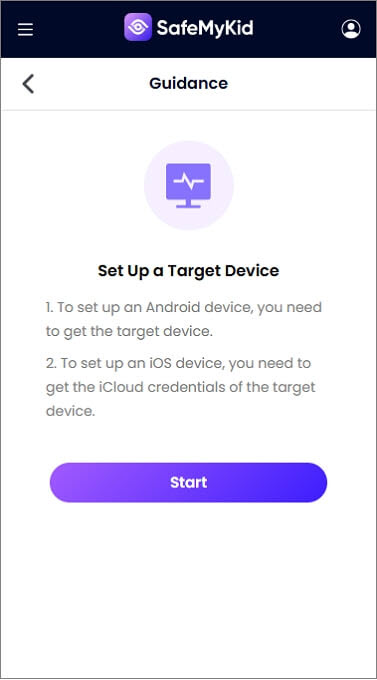How to Leave a Cheating Husband You Love - 7 Tips to Move Forward

The question "How to leave a cheating husband you love" is one of the most challenging emotional journeys many women face, often complicated by the need to catch cheaters texting or gathering evidence before making this life-changing decision.

Making the difficult choice to end a marriage after discovering infidelity becomes even more complicated when love remains despite betrayal. This comprehensive guide offers both emotional support and practical strategies for navigating this painful transition with dignity and self-respect.
Understanding The Emotional Complexity of Infidelity
Before taking practical steps toward separation, it's essential to acknowledge the complex emotions involved when leaving someone you still care for despite their betrayal.
The emotional experience after discovering a spouse's infidelity typically includes several challenging phases:
- Shock and disbelief, even when evidence is undeniable
- Intense pain, anger, and feelings of personal inadequacy
- Cognitive dissonance between your love and the reality of betrayal
- Grief for the relationship and the future you had envisioned
- Fear about financial stability and life changes ahead
Working through these emotions is a necessary part of the healing process, whether you ultimately choose to stay or leave. Many people benefit from professional counseling during this difficult period to help process these complex feelings.
Use SafeMyKid to Catch a Cheating Husband You Love

When suspicions arise but you need concrete evidence to make the difficult decision about leaving a husband you love, having reliable proof can provide the clarity needed. SafeMyKid offers a powerful solution for detecting infidelity through comprehensive digital monitoring capabilities.
While marketed primarily as a parental control app, SafeMyKid has become an essential tool for spouses needing to verify suspicions of cheating with concrete evidence.
Its discreet monitoring features allow you to gather information about communication patterns, hidden conversations, and suspicious activities without alerting your partner.
How to Use SafeMyKid to Catch a Cheating Husband You Love
When you've tried to ignore the warning signs but still need clarity, SafeMyKid provides powerful features to help you discover the truth about your relationship:
- Message Monitoring- Access all text messages, social media communications, and messaging apps to uncover hidden conversations your husband doesn't want you to see.
- Location Verification - Track his actual whereabouts and compare them with where he claims to be, identifying discrepancies that may indicate deception.
- Call History Analysis- Review detailed records of all calls, including those made to unknown numbers or contacts with suspicious communication patterns.
- Deleted Content Recovery - Access photos, videos, and messages that have been deliberately removed to hide evidence of inappropriate relationships.
- Keyword Alerts - Receive immediate notifications when suspicious terms like "meet up", "don't tell", or other concerning phrases appear in your husband's conversations.
Using SafeMyKid to catch a cheating husband you still love provides the emotional clarity needed to make difficult decisions about your future based on facts rather than fear or uncertainty.
How to Set up SafeMyKid to Monitor Your Husband's Activities
Setting up SafeMyKid to detect potential infidelity requires just a few simple steps before you can begin tracking communications discreetly.
Step 1. Create Your SafeMyKid Account
Register for a new account on the SafeMyKid website to begin the setup process.

Step 2. Set up The SafeMyKid App
For Android: Install the SafeMyKid app directly on the target device (requires brief physical access). For iOS: Use iCloud credentials to enable monitoring without physical access to the device.

Step 3. Begin Monitoring for Signs of Cheating Husband You Love
Access your secure SafeMyKid dashboard to view messaging activities, location history, and evidence of potential cheating.

7 Tips to Leave a Cheating Husband You Still Love

Once you've confirmed infidelity and decided that leaving is the right choice, these seven steps will help you navigate the separation process with dignity and self-protection.
1. Gather Evidence and Confirm Your Suspicions
Before making life-altering decisions, ensure you have clear evidence of the infidelity rather than acting solely on suspicion. This confirmation might come through using monitoring tools like SafeMyKid, discovering physical evidence, or receiving direct admission from your spouse.
Having definitive proof not only clarifies your decision-making process but may also prove valuable during potential legal proceedings. While painful to collect, solid evidence helps prevent gaslighting or denial from creating further emotional harm during separation discussions.
Pros:
- Provides clarity and removes doubt about your decision
- May be useful during divorce proceedings in some jurisdictions
- Prevents manipulation through denial or gaslighting
Cons:
- Emotionally painful to collect and review
- This may lead to confrontations if discovered
- Can feel invasive even when justified by circumstances
2. Build a Support System
Surrounding yourself with supportive people is crucial when preparing to leave a marriage, especially one with deep emotional attachments. Identify trusted friends, family members, or support groups who can provide both emotional validation and practical assistance during the transition.
Consider expanding your support network beyond close friends to include a therapist specializing in relationship trauma, a divorce coach who understands the practical aspects of separation, or community support groups for people experiencing similar challenges. These varied perspectives provide balanced support for different aspects of your journey.
Pros:
- Reduces isolation during an emotionally challenging time
- Provides objective perspectives when emotions cloud judgment
- Creates practical safety nets for logistical challenges
Cons:
- May introduce unwanted opinions or pressure from well-meaning people
- Could potentially expose private matters if confidentiality isn't maintained
- Might temporarily strain relationships with mutual friends
3. Create a Financial Safety Plan
Financial entanglement often keeps people in unhappy marriages longer than they would otherwise stay. Creating a comprehensive financial plan before leaving gives you practical freedom to make choices based on emotional health rather than economic necessity.
Begin by gathering documentation of all assets, debts, and income sources, then develop a realistic budget for independent living. Consider consulting with a financial advisor who specializes in divorce to understand the implications for retirement accounts, tax filing status, and other long-term financial considerations before making final decisions.
Pros:
- Provides practical freedom to make health-based decisions
- Reduces vulnerability during separation negotiations
- Creates clarity about realistic lifestyle expectations
Cons:
- May reveal challenging financial realities requiring adjustment
- This could potentially alert your spouse to separation plans if not done discreetly
- Might temporarily lower your standard of living
4. Seek Legal Guidance
Understanding your legal rights and responsibilities before initiating separation protects both your interests and creates clarity about the process ahead. Schedule a consultation with a family law attorney to understand options for divorce, property division, custody arrangements, and support.
Different jurisdictions have varying laws regarding infidelity's impact on divorce proceedings, so local legal advice is essential for making informed decisions. Some locations consider adultery relevant to financial settlements, while others maintain no-fault approaches regardless of marital conduct.
Pros:
- Prevents costly legal mistakes from lack of information
- Creates realistic expectations about outcomes
- Helps prioritize issues worth negotiating versus accepting
Cons:
- Legal consultations can be expensive, even before formal proceedings
- May introduce adversarial thinking into what could be an amicable separation
- Sometimes creates anxiety about worst-case scenarios that never materialize
5. Establish Emotional Boundaries
When leaving a husband you still love, establishing clear emotional boundaries becomes essential for healing. Determine appropriate communication channels, frequency of contact, and guidelines for interactions, especially when children or mutual responsibilities require ongoing connection.
Clearly communicated boundaries protect both parties from the confusion of mixed signals or emotional backsliding during vulnerable moments. Consider creating these boundaries with professional guidance to ensure they support healthy separation while respecting necessary ongoing connections.
Pros:
- Protects emotional progress from confusion or manipulation
- Creates clarity for both parties during the transition
- Models healthy relationship skills for children witnessing the process
Cons:
- Often triggers resistance or testing from the other person
- Requires consistent reinforcement, which can be emotionally draining
- May temporarily appear cold or distant despite loving feelings
6. Create a Practical Exit Strategy
Beyond emotional and financial preparation, leaving requires practical logistics planning. Develop a clear timeline and process for physical separation that addresses housing, possession division, and the mechanics of creating separate households.
Consider timing, safety, communication approach, and support presence when planning the actual separation conversation and process. Each situation requires customized planning based on relationship dynamics, safety considerations, and practical constraints.
Pros:
- Reduces chaos and improvisation during an emotional transition
- Addresses practical details that might otherwise be overlooked
- Creates security during a vulnerable life transition
Cons:
- May feel uncomfortably calculated for a relationship based on love
- This could potentially lead to property disputes if not handled transparently
- Might accelerate the timeline before full emotional readiness
7. Focus on Healing and Rebuilding
The process of recovery after leaving a beloved but unfaithful partner requires intentional healing practices and patience with yourself. Create a structured approach to rebuilding that includes therapy, self-care routines, and gradual exploration of your new independent identity.
This rebuilding phase often involves reconciling conflicting emotions about the relationship while gradually creating a fulfilling new life chapter. Allow yourself to simultaneously grieve the relationship's end while celebrating new freedoms and possibilities.
Pros:
- Transforms pain into personal growth and wisdom
- Prevents unhealthy relationship patterns in future connections
- Creates meaningful closure for this chapter of life
Cons:
- Requires facing painful emotions rather than avoiding them
- Often progresses in non-linear patterns with setbacks
- Takes longer than most people initially anticipate
Signs You're Ready to Leave Despite Ongoing Love

How do you know when it's truly time to answer "Should I leave my cheating husband" with a yes? These indicators suggest readiness for separation despite emotional attachment:
Trust Is Irreparably Damaged - You've realized that despite your feelings, you cannot rebuild essential trust in the relationship.
Repeated Patterns of Deception - When your husband keeps cheating, it isn't an isolated incident but part of a pattern of dishonesty that suggests fundamental character issues.
Your Wellbeing Is Suffering - Staying in the relationship has begun causing significant harm to your mental, emotional, or physical health.
Values Misalignment Revealed - The infidelity has highlighted fundamental incompatibilities in core values that can't be reconciled.
Imagined Relief - When honestly visualizing separation, you primarily feel relief despite the pain involved.
Children's Modeling Concerns - You've realized the relationship models unhealthy dynamics for any children involved.
These signs often emerge gradually, eventually reaching a tipping point where the clarity about leaving outweighs the uncertainty, even when love remains.
Why Do People Stay with a Cheating Husband They Love?
Understanding the common reasons people remain in relationships can help clarify your own "if he's cheating why won't he leave" questions and reduce self-judgment about your situation.
Financial Dependence - Economic entanglement often creates practical barriers to separation, especially for those who've been out of the workforce or have limited independent resources.
Children's Wellbeing - Concerns about impacts on children, from emotional harm to lifestyle changes, frequently motivate people to attempt reconciliation.
Fear of Being Alone - The prospect of rebuilding life independently can seem overwhelming, especially after long marriages or in midlife.
Hope for Change - Many people genuinely believe their partner's promises of transformation, especially when infidelity seems out of character.
Religious or Cultural Values - Some traditions place a strong emphasis on marriage permanence regardless of circumstances, creating internal or external pressure to remain.
Emotional Attachment - Wondering how to love your husband after he cheated is common, as love itself is a powerful motivator to forgive and attempt reconciliation, even when objectively harmful.
Recognizing these common motivations helps validate the complexity of your decision while ensuring choices are made consciously rather than by default.
Frequently Asked Questions about Leaving a Cheating Husband
Here are answers to common questions about navigating separation from an unfaithful spouse:
1. How do I know whether to leave or try to repair the relationship?
This deeply personal decision depends on multiple factors including whether the infidelity was a one-time mistake or pattern, your partner's genuine remorse and transparency, your capacity for rebuilding trust, and the relationship's overall health beyond the infidelity.
The question "Should I leave my cheating husband" often requires professional counseling to help clarify this decision by providing objective guidance through this evaluation process.
2. Should I confront my husband about the evidence I've gathered through monitoring?
While having evidence can prevent gaslighting and denial, how you present this information requires careful consideration.
Some experts recommend focusing conversations on relationship issues rather than detailed evidence, especially if you've used monitoring methods that might escalate conflict. Consider discussing approach strategies with a therapist or legal advisor before confrontation.
3. How do I explain the separation to our children?
Children benefit from age-appropriate explanations that emphasize continued love for them while avoiding detailed discussions of infidelity.
A unified message that focuses on "adult problems" rather than blame, reassurance about continued relationships with both parents, and permission for children to love both parents without loyalty conflicts provides the healthiest foundation during transition.
4. Will I ever stop loving him even after I leave?
Many women wonder how to get over a cheating husband and divorce while still loving them. Love often transforms rather than simply disappearing.
Many people find their feelings evolve into different forms of caring that lack romantic attachment while retaining compassion for the person's humanity.
This evolution happens gradually through the grieving process, eventually creating emotional space for new relationships without completely erasing the significance of the past.
5. How can I catch cheaters texting without confrontation?
If you suspect infidelity but need confirmation before making decisions about how to get rid of a husband who's unfaithful, specialized monitoring solutions like SafeMyKid can help detect suspicious text messages and digital communications.
These tools work discreetly to gather evidence without immediately triggering confrontation, allowing you time to process information and plan your approach appropriately.
Conclusion
Learning how to leave a cheating husband you love represents one of life's most challenging emotional journeys, requiring both courage and strategic planning to navigate successfully.
While the path forward isn't simple, the ability to catch cheaters texting through tools like SafeMyKid can provide the clarity needed to make informed decisions based on facts rather than fears or manipulation.




